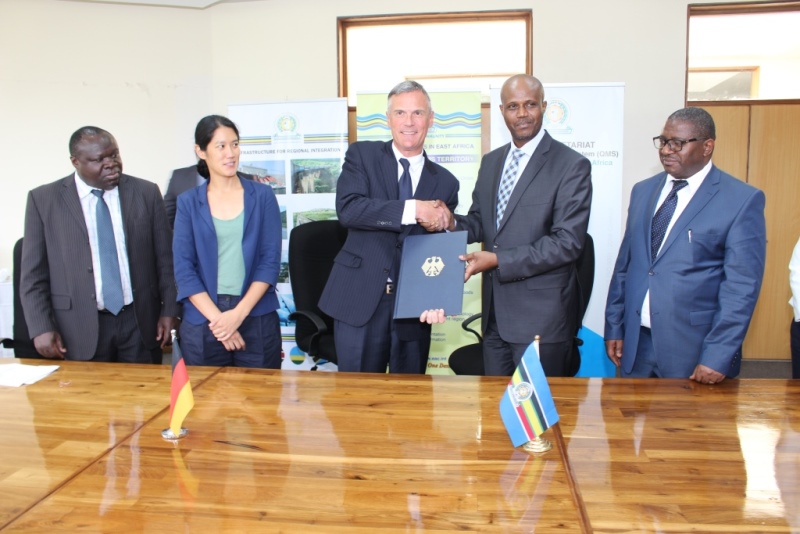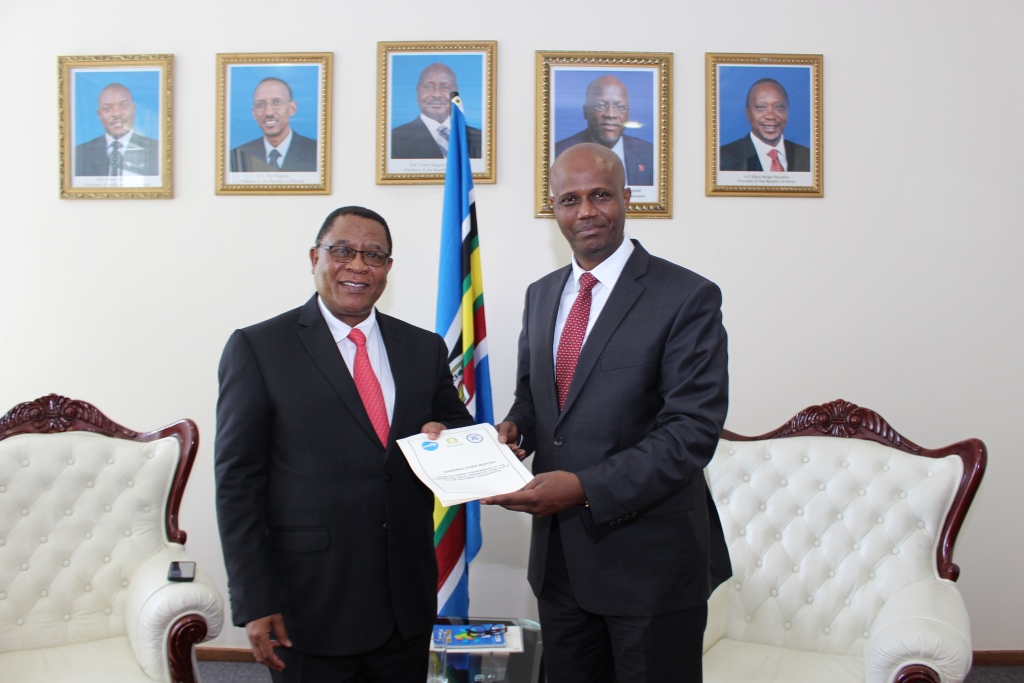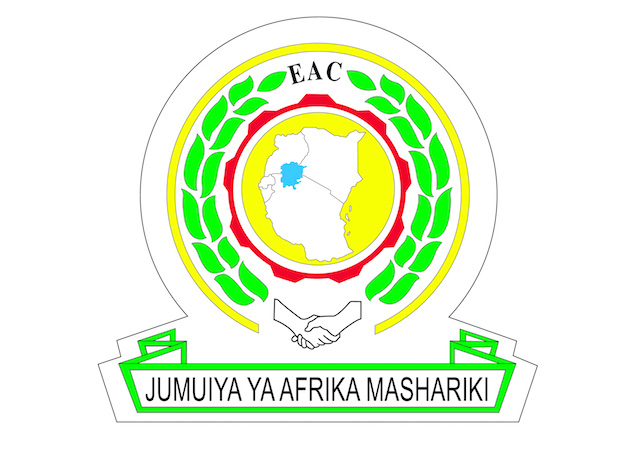
Germany contributes Eur 35 million to East African Community for Health and Education
East African Community Headquarters, Arusha, 20th November, 2017:
The East African Community (EAC) and the Federal Republic of Germany signed a government agreement today in support of health and education in the EAC. EUR 35 million will be invested in vaccination programmes as well as a scholarship programme for East African students.
In appreciation and acknowledgement of the EAC’s efforts to immunize every child, Germany has been supporting the immunization programme in the region in close collaboration with the EAC and Gavi, the vaccine alliance, since 2013. The region has made great progress in introducing new, life-saving vaccines.
However, challenges remain in reaching out to children in remote areas, achieving high coverage rates for newly introduced vaccines and acceptable coverage rates in the new EAC Partner State South Sudan. Therefore, Germany is contributing EUR 30 million to immunization programmes in the EAC with the signed government agreement. The project is successfully being implemented by Gavi, the vaccine alliance, in close collaboration with Unicef, WHO and the Partner States’ immunization programmes. Germany’s total contribution to the EAC immunization programmes thus amounts to a total of EUR 120 million.
Furthermore, Germany will be contributing EUR 5 million to the EAC for a scholarship programme in cooperation with the Inter-University Council for East Africa (IUCEA). Goal of this programme is to promote EAC’s regional integration agenda by supporting higher education students and their role in fostering awareness for the East African integration process, creating social change as well as economic growth.
The scholarship programme is designed as a regional approach supporting East African students with academic talent and leadership qualities. Beyond the provision of scholarships, the EAC scholars will be actively promoted through programme activities such as regional leadership seminars and mentoring schemes. After graduation beneficiaries of the EAC Scholarship Programme will become highly-skilled ‘change agents’ for their home communities as qualified professionals with a strong understanding of regional challenges, approaches and expertise in their respective subject fields.
HE Dr. Detlef Wächter, German Ambassador to the East African Community: "The new commitments underline that Germany continues to be a strong partner for the EAC in pushing the integration process forward. Education and health are core pillars of sustainable economic development and we are glad to be able to contribute to that in this regional context."
For almost two decades, Germany has been supporting the EAC through financial as well as technical cooperation. Germany's contribution to the EAC amounts to a total of almost EUR 285 million.
In his remarks, EAC Secretary General Amb. Liberat Mfumukeko noted that the EAC and the Federal Republic of Germany have been cooperating in different areas with notable achievements being realized.
“These include Health and Pharmaceutical Sectors; Trade and Customs; Promotion of Gender and Education; Monetary harmonization, Institutional Capacity Strengthening and support to the EAC Partnership Fund;” said Amb. Mfumukeko.
The Secretary Genera thanked Germany for her generous support to the EAC, adding that the collaboration between the two parties continues to grow and become stronger.
Also present at the function were the First Secretary and Head of Regional Cooperation (EAC) at the German Embassy in Dar es Salaam, Ms. Norzin Grigoleit-Dagyab, the EAC Deputy Secretary General in charge of Productive and Social Sectors, Hon. Christophe Bazivamo, the DSG-Planning and Infrastructure, Eng. Steven Mlote and Dr Anthony Kafumbe, the Counsel to the Community.
-ENDS-
For more information, please contact:
Mr Owora Richard Othieno
Head, Corporate Communications and Public Affairs Department
EAC Secretariat
Arusha, Tanzania
Tel: +255 784 835021
Email: OOthieno [at] eachq.org
OR
John Merikion
Phone: +255-(0)22 211 740
Email: This email address is being protected from spambots. You need JavaScript enabled to view it.
About the East African Community Secretariat:
The East African Community (EAC) is a regional intergovernmental organisation of five Partner States, comprising Burundi, Kenya, Rwanda, Tanzania and Uganda, with its headquarters in Arusha, Tanzania.
The EAC Secretariat is ISO 2008:9001 Certified

